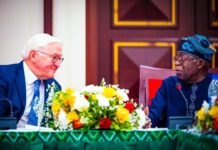 General El Sisi and his military securocrats are trying to crush the Muslim Brotherhood. The attack on Islamism will reverberate through the region
General El Sisi and his military securocrats are trying to crush the Muslim Brotherhood. The attack on Islamism will reverberate through the region
Egypt’s new rulers have set about stamping their authority on the country in the most brutal fashion, albeit with widespread domestic political and popular backing. The generals have calculated that this support will allow them to remove the Muslim Brotherhood, in its present incarnation, from political contention and deal with whatever sanctions the West might apply. Six weeks after President Mohamed Mursi was removed from office by his army commander, General Abdel Fatah Khalil el Sisi, and taken away to an undisclosed place of detention, more than 1,000 people have been killed, mainly by forces under the command of the Ministry of the Interior (AC Vol 54 No 14, The agony and the ecstasy & Vol 54 No 15, Rebels with many causes). Muslim Brothers may have killed around a tenth of those.
The new regime is taking steps to renew the ban on the Brotherhood and to rewrite the constitution to outlaw its allied Freedom and Justice Party (FJP). The ban on the Brotherhood was originally imposed in 1954 after Gamal Abdel Nasser’s Free Officers Movement (which initially included Muslim Brothers) had overthrown King Farouk two years earlier. State television is currently replete with images of and commentaries on the glories of Nasser’s era.
The United States and the European Union had stopped short of condemning Mursi’s removal as a ‘coup’. A US spokesman argued that making a judgement on that would not be in the US national interest; it would have meant that Washington was legally compelled to end military aid to Egypt. Despite dissent from Germany, the Western position implicitly endorses El Sisi’s claim that popular approval for the move was overwhelming and that a new process of democratic transition would soon get under way.
The killing of more than 130 people in two incidents, on 8 July and 27 July, where security forces fired at protestors, did not trigger a strong Western reaction. Instead, US and European diplomats offered their services as mediators between the new regime and the Brotherhood in an effort to forestall any attempt by the security forces to remove the two large protest camps in Cairo by force. Various accounts of these talks that have emerged since the security forces stormed the camps on 14 August indicate that there was not much good faith on the part of any of the protagonists. However, Western mediators felt that the government side was too hasty in pronouncing the initiative dead on 7 August and in blaming the Brotherhood for the breakdown.
El Baradei heads for Vienna
From within the government, the only significant voice of dissent was from Mohammed Mostafa el Baradei, the Vice-President. He is also a leading figure in the National Salvation Front (NSF) of political parties which lent their support to the campaign for Mursi to step down and which subsequently endorsed Gen. Sisi’s coup. After the assault on the camps, in which at least 600 people were killed in a single day, El Baradei resigned and he has since left Egypt and returned to Vienna, Austria, his second home. On 20 August, Professor Ahmed el Ateeq of Helwan University lodged a lawsuit against against El Baradei for ‘betrayal of trust’ by his resignation. The only other high-level resignation so far has been that of Khaled Daoud, the NSF Spokesman and Secretary General of the Constitution Party that Baradei founded. He cited the NSF’s failure to condemn the violence. Prime Minister Hazem el Beblawi, an economist and a founder of the Egyptian Social Democratic Party, has strongly supported the security services’ claims that the root cause of the terrible violence was the terrorist nature of the Brotherhood.
The death of about 60 policemen since 14 August shows that the violence was not all on one side. Arab satellite television channels showed snipers among the pro-Mursi protestors taking aim at police lines. A Sudanese and two Irish passport-holders were reported among those firing from a mosque. Before the security force assault, there were credible reports that several people had been tortured and killed in the protest camps, supposedly suspected of being police informers. More than 50 churches have been attacked, mainly in the Middle Egypt regions of Minya and Sohag, where a large number of Egypt’s estimated 10 million Copts live.
The few Muslim Brotherhood top leaders still at large continue to insist the movement is committed to non-violence. The appearance of armed Brotherhood members outside the presidential palace in December 2012 showed the claim lacked credibility and there is sufficient independent evidence to show that there were weapons in the Cairo protest camps. The new regime’s contention is that the Brotherhood is in essence a terrorist group, which lays the ground for an major intelligence and security crackdown.
Even before Gen El Sisi’s takeover on 2 July, two new affiliates – Muslim Brotherhood Without Violence and the Muslim Brotherhood Youth Movement – formed in reaction to growing criticism of the mainstream organisation’s methods. With the Brotherhood facing prohibition, these groups could become increasingly important in wooing Islamist activists and voters. The army faces heavily-armed jihadist military activity in Sinai, which it is confronting with the approval of Israel, which in turn is lobbying in Washington for the annual US$1.3 billion US military sales grant to Egypt to continue.
It is also probable that the El Gamaa el Islamiya, a Muslim Brotherhood offshoot that fought an armed campaign against President Mohamed Hosni Mubarak’s regime in the 1980s-90s, will reactivate its armed units (AC Vol 51 No 1, Generational change). The arrest of the Brotherhood’s Supreme Guide, Mohamed Badie, on 20 August will doubtless trigger a response (AC Vol 53 No 24, The plot thickens). His trial for killing protestors and supplying arms to the MB Shabaab (Youth) is due to open on 25 August, along with that of other leaders, including Deputy Supreme Guide Khairat el Shater. Badie was previously gaoled under Mubarak, along with Ayman al Zawahiri, now head of Al Qaida, whose brother Mohamed al Zawahiri was arrested on 17 August.
The militarisation of the anti-coup campaign would play into the hands of the armed forces and help to sustain the wave of support they have received. If the army and the civilian government that it has ushered into existence manage to impose a basic degree of security, the next step will be to launch a new political system.
The Interim President, Adly Mahmud Mansour, a former head of the Supreme Constitutional Court, has already set up a panel of ten experts to redraft the constitution that Mursi pushed through in December 2012 (AC Vol 53 No 25, A country polarised). This draft will be reviewed by a larger panel of 50 figures drawn from various parts of society – with minimal input from Islamists – and serve as the basis for parliamentary and presidential elections. The signs are that there will be little scope for the Muslim Brotherhood to take part in this new political system. The movement itself is likely to be stripped of its non-governmental organisation status and it is doubtful whether its party affiliate, the FJP, will be able to continue to operate in its current form.
Those who draft the constitution could simply reinstate a Mubarak-era article banning parties based on religious foundations but this would also disqualify the Salafist El Nour party, which has broadly supported the coup and which the regime may try to use to give itself some ‘Islamic legitimacy’. One way round this could be to exclude parties tied to organisations ‘using violence against the state’, which could serve as a means to ban both the FJP and the Hizb el Bana wal Tanmia (Construction and Development Party), affiliated to El Gamaa el Islamiya.
The heavy bloodshed and the refusal of the new regime to heed Western entreaties to negotiate with the Brotherhood have created tensions in Egypt’s relations with the USA and Europe. US President Barack Obama has so far stopped short of ordering a suspension of US military aid. If he did so, the government would have to compensate US arms companies for multi-year orders covered by the $1.3 bn. grant. Large arms deals signed with the coup’s supporters in Saudi Arabia, the United Arab Emirates and elsewhere in the Gulf could be threatened. The EU has a pipeline of 5 bn. euros ($6.69 million) in aid, announced last November.
Most of this was pledged in the context of the expected agreement with the International Monetary Fund, which has since fallen by the wayside, and the funds would have been allocated to support economic reform or privately financed development projects. The new government has the credentials to implement such programmes but this will be much more difficult in the highly charged political situation that has now developed. Meanwhile, the government has the cushion of $5 bn. transferred by Saudi Arabiaand the UAE as interest-free deposits with the Central Bank of Egypt, which has lifted its foreign exchange reserves (excluding gold and special drawing rights) to $15 bn. These funds will allow Egypt to finance its external needs for up to three months and may be supplemented by further donations.
If a new, stable authoritarian pluralism along the lines of Mubarak’s and Anwar el Sadat’s regimes can be established, there may be a chance for Egypt to rebuild the economy on more secure foundations. As for the Muslim Brotherhood, some elements may be ordered to follow the path of underground armed insurgency, while others may regroup and find a way back into political life. For now, neither the military nor the Brotherhood has a clear strategy beyond the battle for the streets, which the security forces are evidently winning.
Africa Confidential 2013
http://www.africa-confidential.com
Follow Us On WhatsApp



